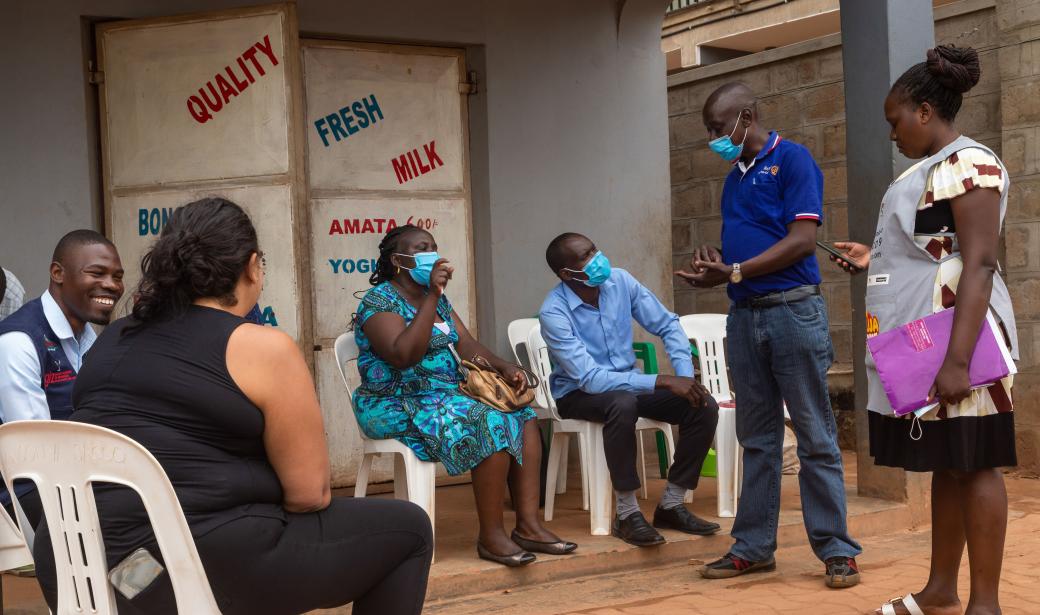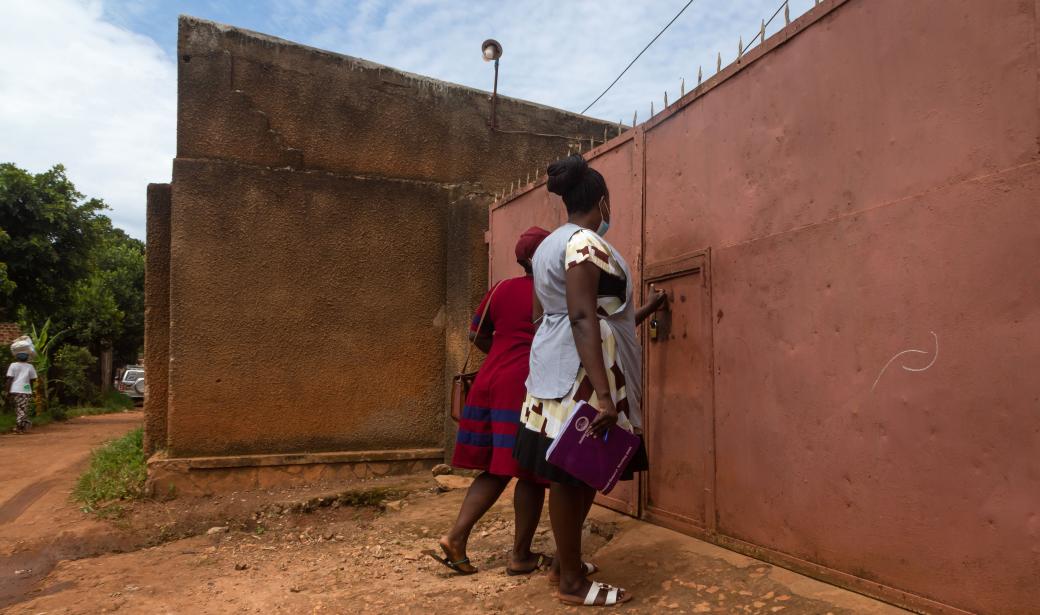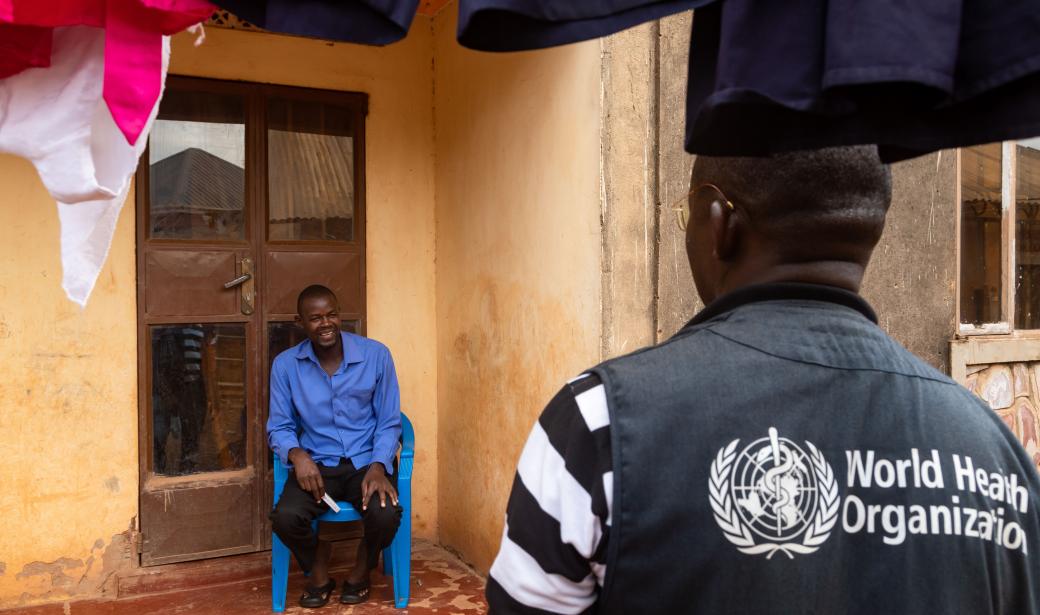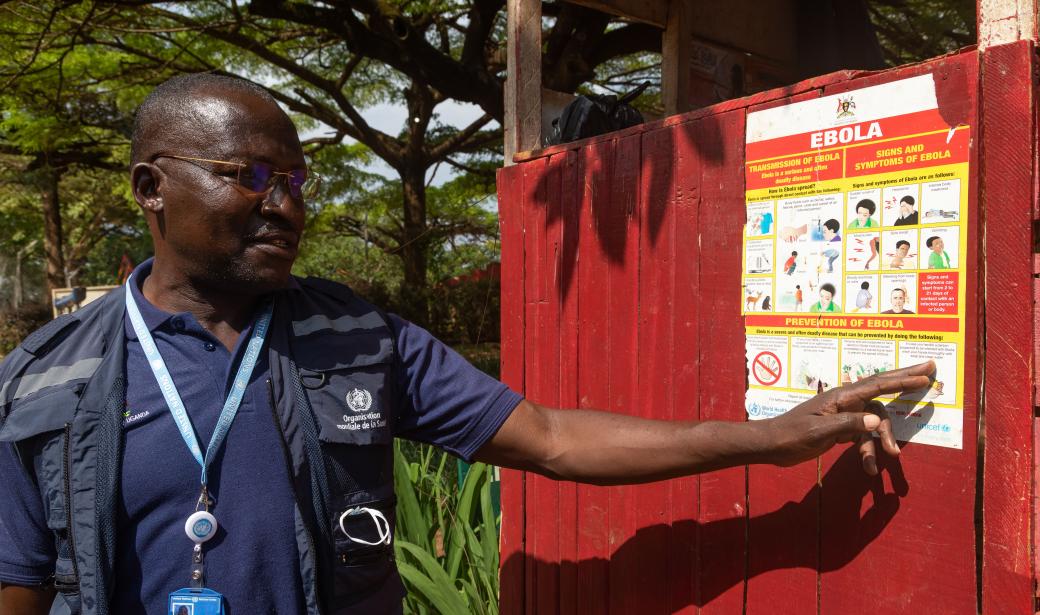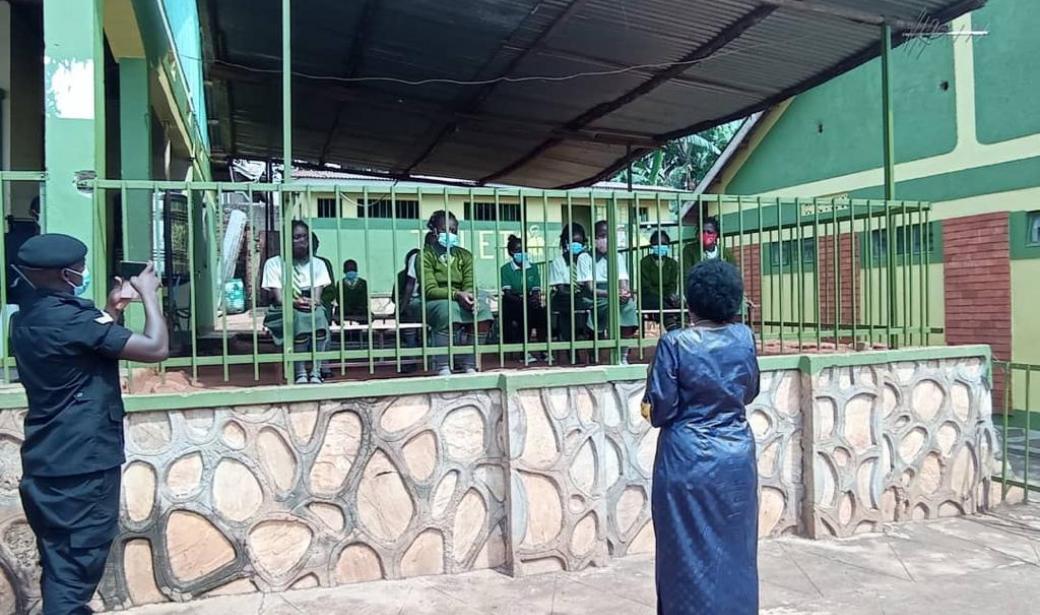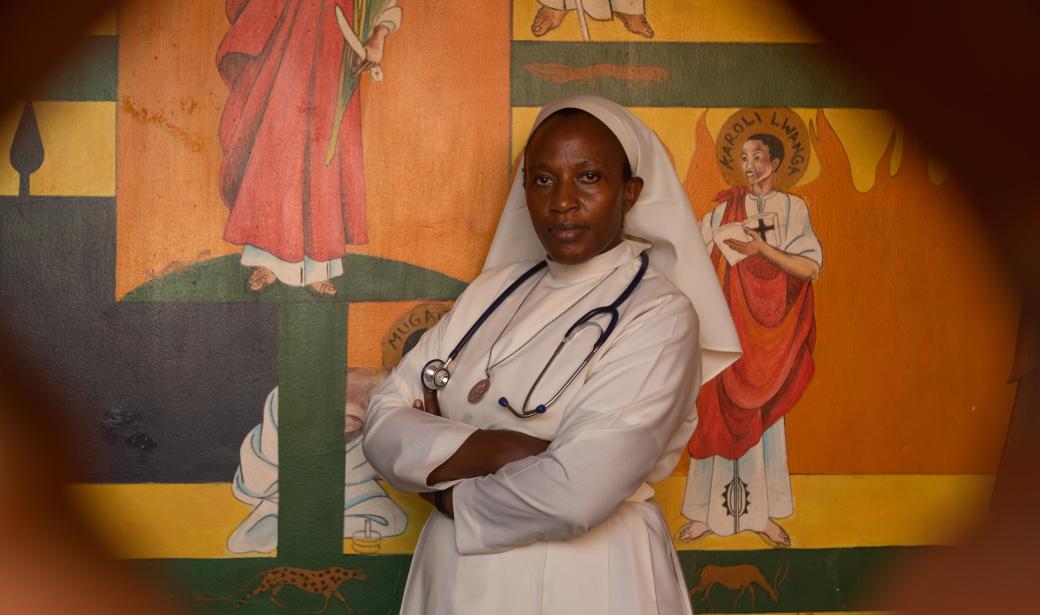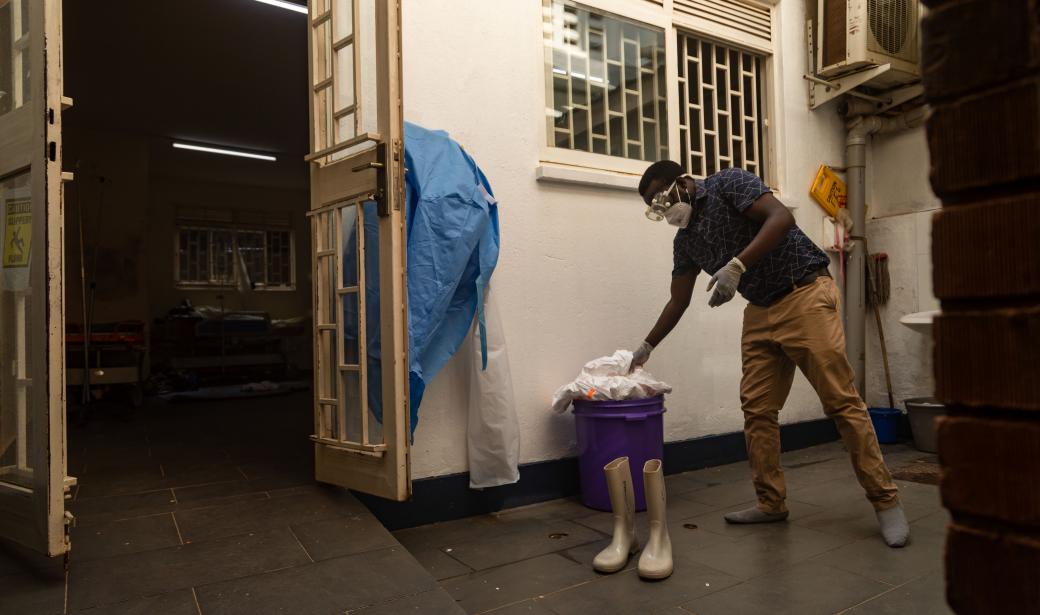Kampala – Uganda declared an outbreak of the Sudan ebolavirus on 20 September 2022 in the country’s central Mubende district, which is about a two-hour drive away from the capital, Kampala. Some Ebola patients travelled from the outbreak epicentre to Kampala in search of care and by 7 November, there were 17 confirmed cases in the city. Stemming the spread of the virus in a densely populated urban area poses difficulties, as the population is highly mobile. Close-proximity living, and, in some areas, inadequate access to proper sanitation, increases the risk of infection.
The health authorities have acted swiftly to mount a robust contact tracing system that has helped to quickly isolate and monitor contacts, as well as provide care to those in need. Public awareness efforts as well as preventive measures are also being reinforced in the city.
Some of the 17 confirmed Ebola cases reported in Kampala come from this densely populated division.
“Going to the local council chairperson of the villages where the contacts are located enables us to have his support and ensures that we are not seen as strangers in the localities, since he is aware of our presence in the area,” says Asiimwe.
“This is my 14th day, and my body temperature is normal. In fact, I’m feeling fine,” says Oreba. “At home, I have my own utensils and bedding which I don’t share with the rest of the family until after the mandatory 21 days monitoring is done,” he explains. His biggest challenge right now, he says, is to resist the temptation to escape boredom by taking a stroll outside his house.
“When a disease like Ebola hits such a big city, communities have a pivotal role to play to curb the spread of the virus,” explains Dr Charles Katureebe, the WHO Coordinator of the Ebola response in Rubaga division of Kampala. “It’s essential to educate and engage the community so that the disease is understood by all… especially the prevention measures, its signs and symptoms so that all suspected cases are reported early and taken care of,” he says.
With WHO support, around 50 000 posters and 20 000 leaflets containing information about Ebola, its symptoms, and options for care have been circulated by contact tracers in Kampala.
On 26 October, six children from three different schools in Kampala tested positive for Ebola. They were all contacts of the confirmed case. Their classmates and teachers were quarantined and monitored. The authorities reached out to all the teachers and parents in the school to sensitize them on the need to comply with preventive measures.
Other schools in the city were instructed to ensure that all children regularly wash their hands and have their temperatures taken when they arrive in the morning. The thermometers used in the process are provided by the United Nations Children’s Fund.
These preventative measures are being rolled out in other institutions across the city.
“At the hospital gates, all people are required to wash their hands before being let in,” she says. “At the triage, we take note of the body temperatures of all patients. If suspicious cases are identified, they are moved to the fully-fledged isolation unit we set up to handle suspected cases.”
The hospital will report any patient with Ebola-like symptoms to the Ministry of Health and samples are taken for testing at the Uganda Virus Research Institute. Out of the nine suspected cases recorded so far at the hospital, none have tested positive.
“The general awareness levels in the country have increased,” he says. “That is why we are seeing more and more suspected cases coming up voluntarily. This is making it easier for contact tracing and management.”
Communications Officer
WHO Uganda
Email: tcheutchouae [at] who.int (tcheutchouae[at]who[dot]int)
Communication Officer
WHO Regional Office for Africa
Email: ridgardn [at] who.int (ridgardn[at]who[dot]int)
Tel: +254 11 289 0666



